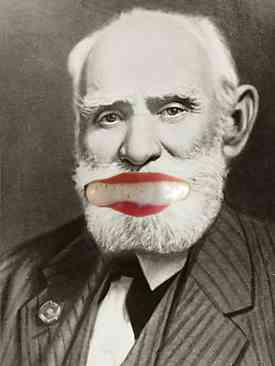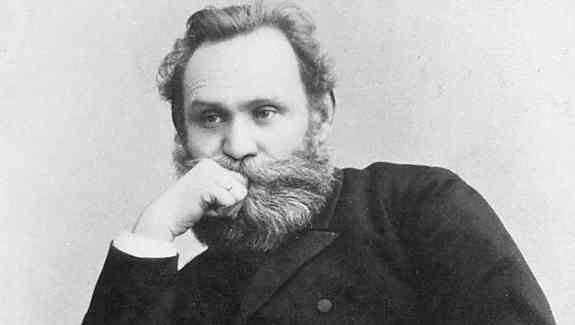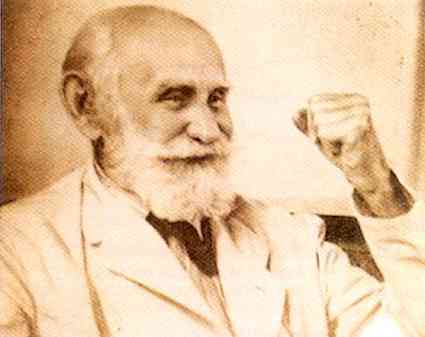Ivan Pavlov
On September 14, 1849, in a small village in Russia, a future
scientist was born unto the town's priest (who was also his father).
Ivan Pavlov initially followed in his father's footsteps, studying
theology. After being inspired by the works of Charles Darwin,
Pavlov sealed his fate as a scientist by enrolling in natural
sciences courses at the University of Saint Petersburg.
 Ivan Pavlov
Ivan Pavlov |
|
Once he finished his doctorate, Pavlov worked at the Heidenhain
laboratories in Germany. It was here that he studied digestion
of dogs, and developed an exterior section of the stomach known
as the Pavlov Pouch.
After returning from Germany, Pavlov was offered positions at
the University of Saint Petersburg, Toms University, and the University
of Warsaw, but declined all three. He then helped develop the
Department of Physiology at the Institute of Experimental Medicine
where he remained for 45 years.
As he lay dying, Pavlov kept his wits about him, and even had
a student sit as his bedside to record his patterns of death.
He had hoped to capture evidence of subjective existence when
in a terminal stage. He died on February 27, 1936 of double pneumonia.

Contributions to Science
Pavlov was best known for his work in psychology, specifically
his research on classical conditioning. Though he was not a psychologist,
and he was reported to despise the subject, he played a major
role in understanding behavioral science. His studies in conditioning
have been used by other researchers to understand how humans learn,
as well as how they react to what they've learned. John B. Watson,
the American psychologist who established the psychological school
of behaviorism, has referred to the work of Pavlov in many of
his own writings and studies.
Despite being nominated for three years, Pavlov never won the
Nobel Laureate because his findings weren't related to a distinct
discovery. Pavlov finally won the Nobel Prize in 1904, thanks
to his experiments on the digestive glands. He used dogs to determine
how their digestion was related to physiological processes and
conditions.
He collected saliva from his experimental subjects, which were
housed in his laboratory, making it seem more like a kennel then
a research facility. During his experiments, he concluded that
dogs excreted saliva prior to food actually being put in their
mouths, leading him to take interest in this process, which he
termed "psychic secretion".

His famous experiments of exposing the dogs to a variety of stimuli
to study their psychic secretion, lead to the discovery of "conditional
reflexes", which Pavlov attributed to the cerebral cortex.
The study of these reflexes serves as a basis for modern behaviorism
as well as making significant advances in psychology and physiology.
Because he became interested in the long-term study of his subjects
(the dogs), Pavlov had to keep them healthy and alive, which was
a groundbreaking type of study. In the past, animals used in laboratory
settings were often killed in the process of experimentation.
Rumor Has It …
… that when he was a child, Pavlov's mother would ring the dinner
bell and Pavlov would start salivating.
|

